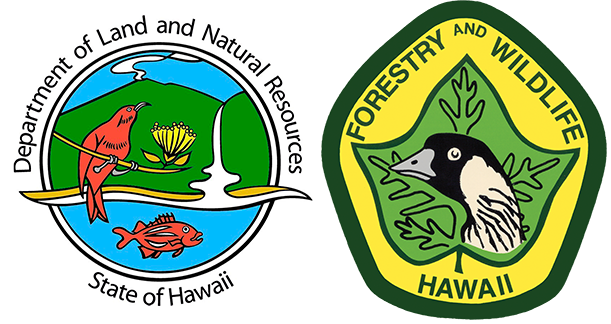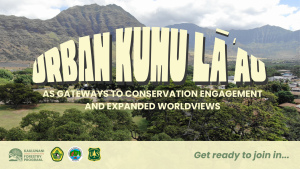HCC Forum 2024
Audience poll (Mentimeter) link: https://www.menti.com/aljaj1osqzo3 or use code 8890 8902
E Ulu! By the Kaulunani Council November 14, 2019
Read bold lines together:
E ulu ulu
trees and greenery in public spaces
beautiful and inviting towns and neighborhoods
inspiration
E ulu ʻai
healthy living, fresh food, exercise in fresh air
nā mea ʻono a pau
E ulu ʻāina, e ulu kai
ecosystem health
resilience
ke aloha, the exchange of breath, the CO2 for the O2
E ulu poʻe
cooperation
education
partnership in stewarding our urban and community forests
E ulu pono
love and learning from the local to the global ʻāina
community connection to trees and each other
awareness of the great impact of small efforts taken by many
E ulu kuleana
respect for our role in our ecosystem
the benefits of trees for our keiki, our kūpuna, ourselves, and our future
no nā hanauna hou
E ulu ke ola!
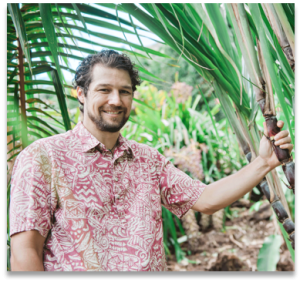 Noa Kekuewa Lincoln is the production advisor and a board member to the Hawaiʻi ʻUlu Cooperative and a distinguished faculty member within the Department of Tropical Plant and Soil Sciences at the University of Hawaiʻi at Mānoa. With expertise in Indigenous crop cultivation and sustainable agriculture, he is a leader in research aimed at revitalizing traditional Hawaiian agricultural practices. Through his innovative work, Noa bridges the gap between Western science and Indigenous knowledge, contributing to the preservation and advancement of Hawaiian culture and food sovereignty.
Noa Kekuewa Lincoln is the production advisor and a board member to the Hawaiʻi ʻUlu Cooperative and a distinguished faculty member within the Department of Tropical Plant and Soil Sciences at the University of Hawaiʻi at Mānoa. With expertise in Indigenous crop cultivation and sustainable agriculture, he is a leader in research aimed at revitalizing traditional Hawaiian agricultural practices. Through his innovative work, Noa bridges the gap between Western science and Indigenous knowledge, contributing to the preservation and advancement of Hawaiian culture and food sovereignty. 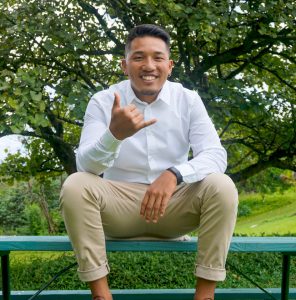 Jesse Pilialoha Mikasobe-Kealiinohomoku is a dedicated advocate and community health leader serving at the Waiʻanae Coast Comprehensive Health Center and as an integral part of the NiU NOW! initiative. Driven by a passion for holistic wellness and community empowerment, Jesse works tirelessly to address health disparities and promote culturally relevant approaches to healthcare on the Waiʻanae Coast. He champions initiatives focused on nutrition, sustainability, and cultural revitalization to support the well-being of residents and foster resilience in the community.
Jesse Pilialoha Mikasobe-Kealiinohomoku is a dedicated advocate and community health leader serving at the Waiʻanae Coast Comprehensive Health Center and as an integral part of the NiU NOW! initiative. Driven by a passion for holistic wellness and community empowerment, Jesse works tirelessly to address health disparities and promote culturally relevant approaches to healthcare on the Waiʻanae Coast. He champions initiatives focused on nutrition, sustainability, and cultural revitalization to support the well-being of residents and foster resilience in the community. 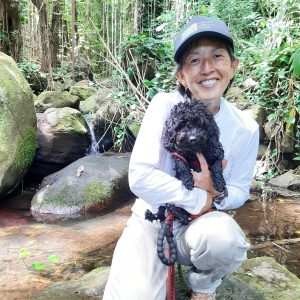 Pauline Sato is the Co-founder and Executive Director of Mālama Learning Center, where she passionately leads work at the intersection of environmental education and community empowerment. Drawing from an extensive background in ecology and education, Pauline has led Mālama Learning Center to the forefront of ‘āina-based education, fostering a deeper connection between people and the environment. Through innovative programs and partnerships, she continues to inspire individuals of all ages to become stewards of the land and advocates for a more resilient future.
Pauline Sato is the Co-founder and Executive Director of Mālama Learning Center, where she passionately leads work at the intersection of environmental education and community empowerment. Drawing from an extensive background in ecology and education, Pauline has led Mālama Learning Center to the forefront of ‘āina-based education, fostering a deeper connection between people and the environment. Through innovative programs and partnerships, she continues to inspire individuals of all ages to become stewards of the land and advocates for a more resilient future. Urban ʻĀina: An Indigenous, Biocultural Pathway to Transforming Urban Spaces Published: 21 June 2023
by ʻĀina of Kaʻōnohi, Anthony K. Deluze, Kamuela Enos, Kialoa Mossman, Indrajit Gunasekera, Danielle Espiritu, Chelsey Jay, Puni Jackson, Sean Connelly, Maya H. Han, Christian P. Giardina, Heather McMillen, and Manu Aluli Meyer
Read the full paper (open access) at this link.
Abstract:
Sign up to receive occasional email updates from Kaulunani, including opportunities to provide input and get involved with the “Year of Our Community Forests” Campaign.
